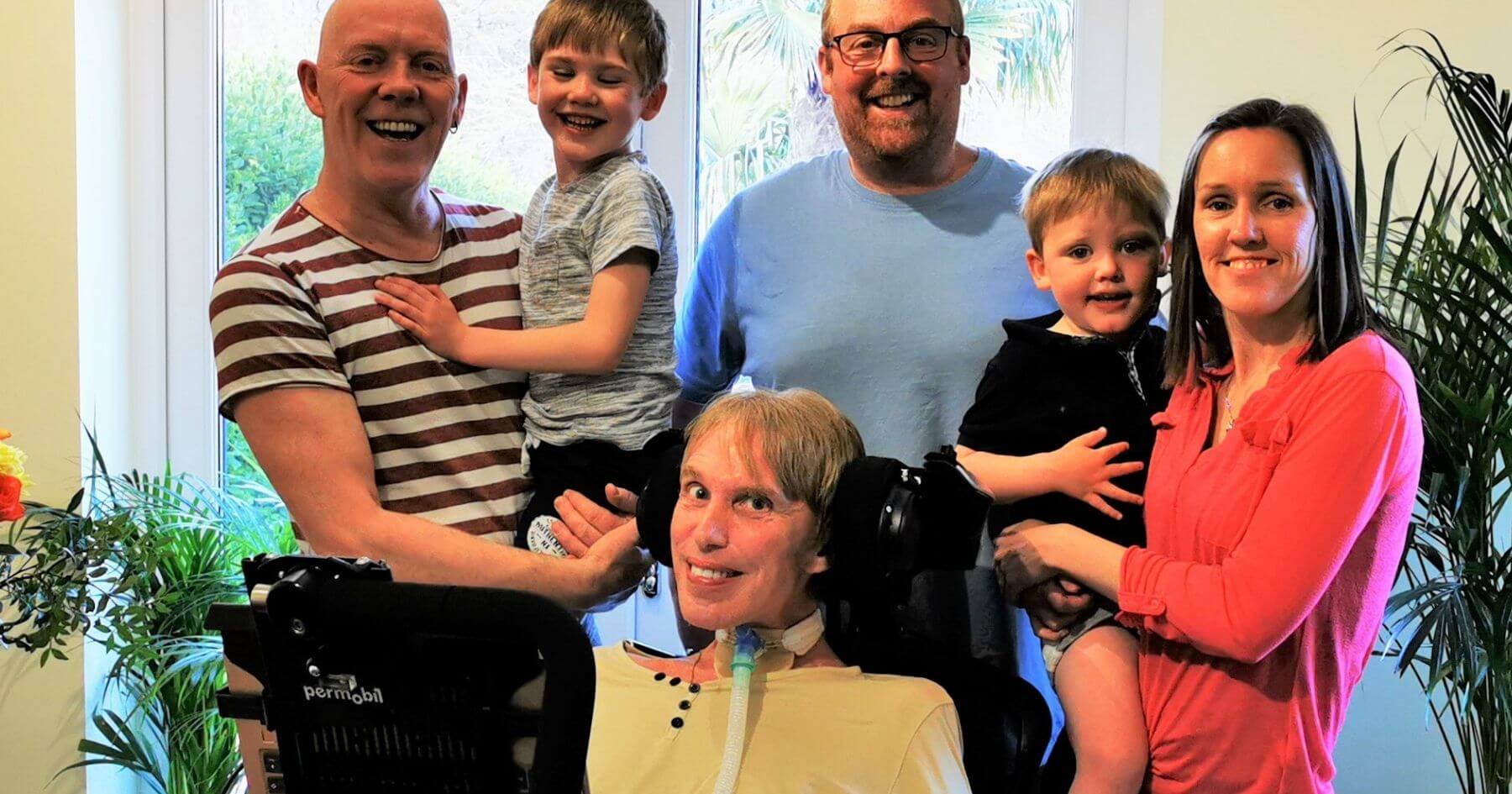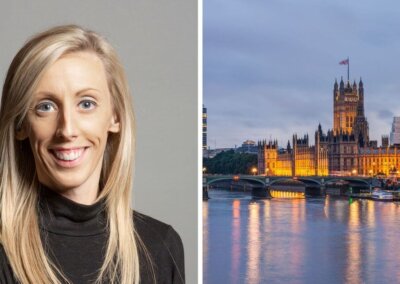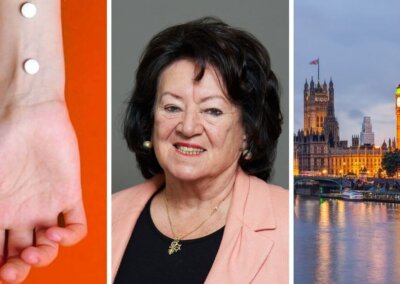World-leading robotics and artificial intelligence scientist Dr Peter Scott-Morgan, who has motor neurone disease (MND), has spoken out against the assisted suicide bill currently being considered by the House of Lords.
Dr Scott-Morgan, who describes himself as a “human-cyborg”, laid out his position on the issue of assisted suicide in a comment piece for The Sunday Times.
He wrote: “When I heard of a move to update the law on assisted dying, I intuitively supported it; the intentions appeared as obviously reasonable, compassionate, and humane. And I’m a scientist. So I set about researching whether it’s possible to ensure informed choice without pressure. I focused on motor neurone disease, sometimes called ‘the cruellest disease’ and often used as the justification for assisted suicide”.
“I have late-stage MND. Since 2017 doctors have agreed I might die within six months. Now, I’m almost completely paralysed”.
“It’s impossible to make an informed decision about your options if the medical community around you isn’t aware how many exciting alternatives are emerging”.
“Thanks to pioneering NHS surgeries, continuous healthcare funding to look after me at home, and cutting-edge technology that lets me speak in my original voice (and type this) using only my eyes, MND may never get to kill me. Heart disease or dementia may do the honours”.
“Already my overall quality of life is exceptional. I have love. I have fun. I have hope. I have purpose. Mine is only one instance of rewriting the future of extreme disability. How many doctors tell their newly diagnosed MND patients that there’s no such hope?”
“It’s impossible to make a choice to live, let alone thrive, if you’re only offered ways to die”
He went on: “It’s impossible to make a choice to live, let alone thrive, if you’re only offered ways to die”.
“In the UK, decisions on treatment options available if you have MND are made locally, not nationally. Less than 0.5 per cent of people with MND in the UK receive the kind of life-saving treatment I’ve had; in Japan it’s more than 30 per cent”.
“So, what do I feel about the proposals to change the law on assisted suicide? The Assisted Dying Bill, which has had its first reading in the House of Lords, would allow competent adults who are terminally ill to be provided with assistance to end their lives. But, it’s impossible to ensure people make their decision without pressure when the present system is so unrelentingly negative. Avoiding coercion requires people to believe there are serious alternatives”.
“I worry that many making a decision about assisted suicide may be depressed or concerned about the emotional and financial burden on others and that there are insufficient protections against patients not being fully informed”.
“My intuition still says it’s time to update the law. But there’s an injustice in protecting the right to die without putting the same effort, education and funding into the right to live and thrive. That may be economically convenient. But it’s also cruel and uncivilised. We’re better than that”.
Dr Scott-Morgan has previously addressed the issue at an event hosted by the All-Party Parliamentary Group for Dying Well, in which he and other disability rights campaigners spoke powerfully against Baroness Meacher’s assisted suicide bill. The cross-party parliamentary group was formed earlier this year in order to unite against renewed calls to make assisted suicide legal in the UK.
Pushing the boundaries
Chair of the pro-assisted suicide group, ‘Dignity in Dying’, Baroness Meacher’s private member’s bill on assisted suicide received its First Reading in the House of Lords on 26 May this year, and a Second Reading is expected in the autumn.
The Bill follows the Marris-Falconer Assisted Dying Bill (2015), which was defeated by a majority of 330 to 118 MPs.
According to supporters of the Bill, Dignity in Dying, “[t]he bill is modelled on legislation that has been in place in Oregon, USA for over 23 years […]”.
Other countries that have introduced supposedly restricted assisted suicide and euthanasia legislation have seen an expansion of their laws as medical professionals and activists push the boundaries of acceptable practice.
Expanding euthanasia law
In the Netherlands, Canada, and Belgium, the law that permits euthanasia has rapidly expanded to include more categories of people.
Belgium legalised euthanasia in 2002 and since then, the practice has even been extended to children. The current law allows euthanasia if the patient is in a state of constant physical or psychological pain.
There is now a renewed push for euthanasia to be available for those who are healthy but have decided they have led a ‘fulfilled life’.
In the Netherlands, where euthanasia has been legal since 2002, doctors are now permitted to secretly sedate patients who have dementia before euthanising them. The law permits voluntary euthanasia for anyone over the age of 16, and children aged 13-15 can be euthanised with their parents’ consent. Last year, the Dutch government said it would be changing the regulations to allow doctors to end the lives of terminally ill children between the ages of one and twelve.
Euthanasia has been legal in Canada since 2016. In 2019 however, following the euthanising of Alan Nichols, a former school caretaker who was physically healthy but struggled with depression, the legal requirement that a person be terminally ill before administration of euthanasia was dropped.
Bill C-7, recently passed by the Canadian Parliament, intends to further extend euthanasia legislation to people with disabilities and those with mental health issues.
Right To Life UK spokesperson, Catherine Robinson, said: “It is wonderful to see such a positive and inspiring voice as Dr Scott-Morgan speaking out against the prevailing – yet misleading – narrative on assisted suicide”.
“It is no coincidence that many prominent people with disabilities, plenty of disability rights groups, and many respected healthcare professionals continue to rally against such legislation, for it strikes against the very heart of the dignity and care we ought to afford to each human being”.
Image Credit: @DrScottMorgan on Twitter












